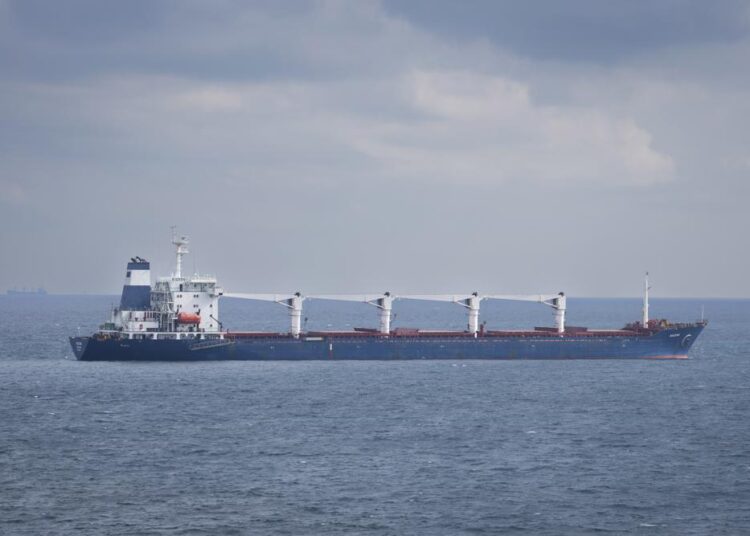More ships from Ukraine are expected to set out in the coming days, raising hope that world food shortages can be alleviated. Some 27 vessels have been waiting in three Ukrainian ports with cargo and signed contracts, ready to go, according to UN spokesman Stephane Dujarric.
An estimated 20 million tons of grain have been stuck in Ukraine since the start of war. The UN-brokered agreement last month to release the grain calls for the establishment of safe corridors through the mined waters outside Ukraine’s ports.
The holdup of shipments because of the war has worsened rising food prices worldwide and threatened hunger and political instability in developing nations.
Most of the grain stuck in Ukraine is to feed livestock, according to David Laborde, an expert at the International Food Policy Research Institute in Washington. Only 6 million tonnes is wheat, and just half of that is for human consumption, Laborde said. He said the Razoni is loaded with chicken feed.
Ukrainian President Volodymyr Zelenskyy says the resumption of grain exports will reduce Russian authorities’ ability to extract concessions from the West. “They are losing one of the opportunities to terrorize the world,” he said in his nightly video address late Tuesday.
Russia’s war against Ukraine has also disrupted energy supplies in western Europe, with Moscow drastically cutting how much it sends amid fears it could stop sending any at all.
Meanwhile, the UN nuclear chief warned that Europe’s largest nuclear power plant in Ukraine “is completely out of control” and urgent steps are needed to avoid a nuclear accident.
Rafael Grossi, director general of the International Atomic Energy Agency, said in an interview on Tuesday with The Associated Press that the situation is getting more perilous every day at the Zaporizhzhia plant in the southeastern city of Enerhodar, which Russian troops seized in early March, soon after their February 24 attack on Ukraine.
“Every principle of nuclear safety has been violated” at the plant, he said. “What is at stake is extremely serious and extremely grave and dangerous.”
He issued an urgent plea to Russia and Ukraine to quickly allow experts to visit the sprawling complex.
Meanwhile, Russian forces kept up their bombardment of the southern Ukrainian city of Mykolaiv, hitting it with shells twice over the past 24 hours — around 9 pm on Tuesday and 5 am on Wednesday, governor of the Mykolaiv region Vitaliy Kim reported.
The shelling damaged a pier, an industrial enterprise, residential buildings, a garage co-operative, a supermarket and a pharmacy, Kim said. It wasn’t immediately clear if there were any casualties.
Mykolaiv is a southern port city, somewhat on par with Odesa, and is located on the Black Sea. The Russians have said in April they want control over not just eastern, but southern Ukraine, too. Taking over Odesa and Mykolaiv in the south will give them control over the entire Black Sea coast and a land corridor to the breakaway Moldovan region of Transnistria.
Amid the relentless onslaught by Moscow’s forces, Zelenskyy issued an order to all those remaining in the country’s embattled Donetsk region to evacuate as soon as possible.






Discussion about this post